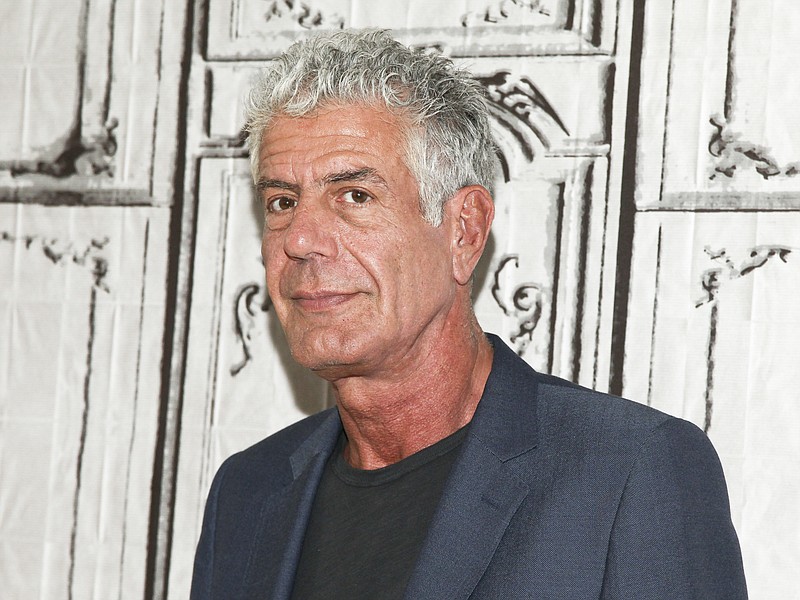This man seemed to have it all. Celebrity chef, TV travel dude and author Anthony Bourdain circled the globe, going to exotic places, eating the world's best foods - whether at a West African fish hut or the finest restaurants in Paris. He lived in a multimillion-dollar Manhattan condo.
And last week, he took his own life.
Now, if you've ever watched the shows "No Reservations" or "Parts Unknown," you know he was kind of a bad boy. Savvy and intelligent, yes. But irreverent, edgy and sometimes profane. You couldn't help but think, "This man needs Jesus."
Sadly, all that Bourdain had and had achieved was not enough to save him from what is now called "death from despair."
And he's not alone. His death came right after the suicide of New York handbag designer Kate Spade and a day after the Centers for Disease Control and Prevention reported that between 1999 and 2016, suicide rates in all but one state in the U.S., across age, gender and ethnic lines, increased. Suicides, in fact, are the second leading cause of death for people ages 15-34. Throw in the other "deaths of despair," such as drug overdoses and complications from alcoholism, and we have a public health crisis of the first order.
Given the state of our culture, it's not surprising. People seem more isolated than ever before, despite - or perhaps in part because of - being more virtually connected. Loneliness and depression are epidemic and rising, and the mediating institutions of communities, like families, churches and civic organizations, are struggling, to say the least. Social ties are fraying at an astonishing pace.
In our society, it's increasingly difficult for individuals to be spiritually, mentally and emotionally healthy.
And Christians are not immune. I think of Rick and Kay Warren's son, Matthew. And my friend, Wisconsin Pastor Bill Lenz. Thank God the church is starting to wake up to the problems of suicide and mental illness. But only starting to wake up.
On a BreakPoint podcast, I talked with Dr. Aaron Kheriaty, who's the director of the bioethics program at the University of California, Irvine.
"The time has come," Dr. Kheriaty told me, "for the church to have a serious conversation about mental illness, about reaching out to those who struggle with mental illness, providing pastoral care for them and their families so that they can truly feel integrated into the Christian community."
And that integration is essential. Dr. Kheriaty said, "The person who has a strong inner conviction of God's love for them and his healing mercy and feels supported by the Christian community, that person is going to have a significantly lower risk" of suicide, "even if they are struggling with a serious [mental] illness."
I asked Dr. Kheriaty what advice he has for parents or family members who have a loved one who is struggling. First, he said, don't lose hope. Recovery from mental illness is possible, but it's a long, hard process. Second, speak to your pastor to see if he can recommend a mental health professional. If not, don't be afraid to seek out a competent professional. Too often, Christians are automatically closed to the idea of medication, which he said may be helpful, even life-saving in some cases.
And then, what can churches do? Be aware, he said. The person next to you in the pew may be struggling. Pastors and church leaders: Pray for your members who are suffering. And vice versa! Open the door to support groups for those who struggle with mental illness or their family members - much like we would for anyone struggling with a physical illness. If leaders lead - even with small steps - the congregation will follow.
Next to Jesus Himself, life is the greatest gift God has given us. And as his children, we have to do all we can to help our brothers and sisters hold on to life - and to him.
From BreakPoint, June 13, 2018; reprinted by permission of the Colson Center, www.breakpoint.org.
